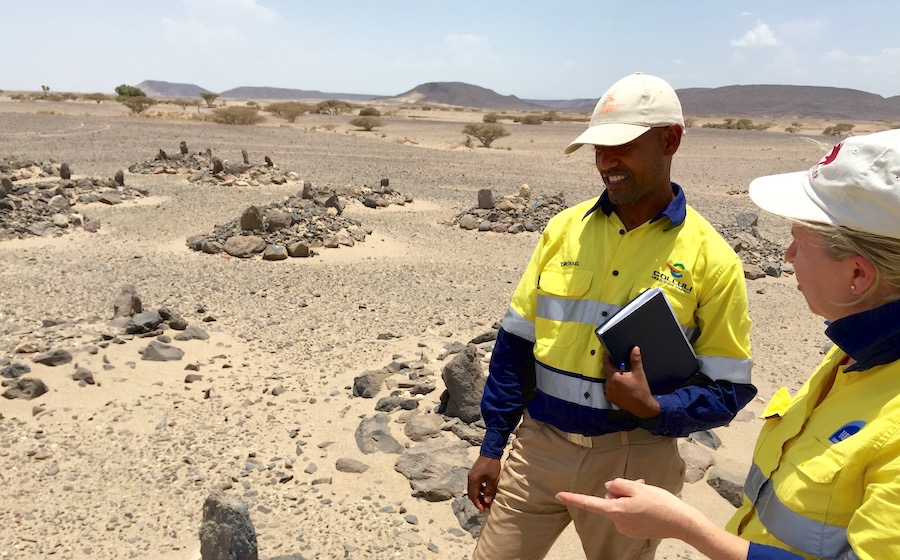Danakali to sell stake in flagship Colluli potash project in Eritrea

Australia’s Danakali (ASX: DNK) is selling its 50% stake in the Colluli potash project in Eritrea, Africa, almost 13 years after partnering with the Eritrean National Mining Corporation (ENAMCO) to build the mine.
Subject to conditions, the deal with Chinese company Sichuan Road and Bridge Group is expected to be finalized between March and May next year, leaving Danakali with $121 million cash, of which 90% will be distributed back to shareholders.
The miner said it would use the remaining cash — about $12 million —to identify new projects “and potential new alternative growth opportunities.”
The Colluli potash project is considered one of the world’s most significant and lowest-cost sources of sulphate of potash (SOP), a premium grade fertilizer.
The project has the world’s largest JORC compliant reserve at 1.1 billion tonnes. It also contains other fertilizer products, such as muriate of potash (MOP) and gypsum, along with rock salt.
There is also potential for kieserite and mag chloride to be commercialized with minimal further processing required.
A United Nations report published in 2019 suggested that Colluli could significantly boost the economy of Eritrea.
The project is the only known source of potash that allows extraction of the fertilizer in solid form. It also has access to solar, wind and geothermal energy systems – the East African rift.
The operating environment weighed heavily on Danakali’s decision, as Eritrea is ruled by one of the world’s most oppressive regimes and was until 2018 on the UN’s sanctions list.
{{ commodity.name }}
{{ post.title }}
{{ post.date }}




4 Comments
[email protected]
This article lost credibility in characterizing the country of Eritrea as “most oppressive regime”. Based on what evidence? And how is that relevant here, the government has not changed since Dankali’s involvement so it was certainly a government worth doing business with at some time. The west really needs to let go of calling every developing nation that doesn’t bend at its will “oppressive”. It is actually resistant to the west’s oppression in the most pure sense of the term.
Cecilia Jamasmie
Thank you for your comment. I based my assertion of Eritrea being ONE of the most oppressive regimes on a series of reports by human rights advocates such as Human Rights Watch (https://www.hrw.org/world-report/2021/country-chapters/eritrea) as well as sites such as D+C (https://www.dandc.eu/en/article/how-government-eritrea-became-one-worlds-most-repressive-regimes).
I recommend a book by Martin Plaut, a senior researcher at London’s Institute of Commonwealth Studies and former Africa Editor of the BBC’s World Service called “Understanding Eritrea: Inside Africa’s Most Repressive State” (https://www.hurstpublishers.com/book/understanding-eritrea-2/).
Best,
Joe
You are talking about the garbage written by Plaut ? seriously, this Man is a lobbyist of TPLF – A group designated as a Terrorist Organisation in Ethiopia. I think you should research about th e author. Anyone can write a book, as long as is a white person, you would buy it – even a white homeless from NYC.
Hailom Ghebreab
I bought many shares @ 67 Cents per share, total of 240.000.00 Now the share is under 20 Cents. ,and the value is around 67,000.00 . Danakali Lmited is selling share to China. What are my chances of getting my money back?